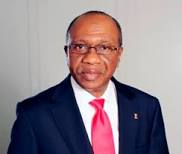
The Central Bank of Nigeria (CBN) has done the appropriate thing by introducing a new foreign exchange (FX) regime and guidelines for the operations of the market-driven exchange rate for the Naira. The more flexible new foreign exchange regime replaces the de-facto fixed exchange rate regime, which officially pegged the nation’s currency at a rate of N197 to the one U.S. dollar while the volatile parallel market rate reached as high as over N370 to the dollar. The actual rate opened at about N254 yesterday and foreign portfolio investors would likely come in at around N285 and above.
The greater flexible foreign exchange regime as announced by the Governor of the Central Bank, Godwin Emefiele has some positive features and attributes. The interbank market shall be the only official foreign exchange market in Nigeria. The determination of the currency rates shall be market-driven, although the Central Bank of Nigeria shall intervene in the market as need arises. The flexible foreign exchange regime further introduces long tenured foreign exchange forwards, which must be trade-backed with no pre-determined spreads, and bespoke over-the-counter foreign exchange futures.
Non-oil exporters would now have unrestricted access to exports proceeds via the interbank market. Previously, non-oil exporters had to grapple with surrendering their export proceeds at the official peg rate, while sourcing foreign exchange for some of their imports via the parallel market. Also, foreign portfolio investment is to be settled at daily inter-bank rate.
While the new foreign exchange regime should be welcome, there are matters arising from its operationalisation as well as its attendant effects on the economy at large. Some selected banks were first envisaged to serve as primary foreign exchange dealers with large transactions of U.S.$10 million, with no predetermined spread on transactions. It was initially projected that four large banks would meet outright the three criteria of minimum assets of N200 billion, foreign exchange transactions of N400 billion, and liquidity ratio of 40 per cent. Additionally, two banks may meet two of the criteria.
In this context, a new flexible regime that is expected to foster competitive foreign exchange pricing would have ended up combining features of oligopsony, few buyers, with monopoly attributes as the central bank remains the dominant supplier of oil exports foreign exchange earnings. This naturally would have raised the issue of foreign exchange price-fixing cartel, collusion, and lack of transparency. It may also have sent the wrong signal that the non-primary dealing banks are not as healthy as the primary dealing banks. It is a welcome development, therefore, that reason prevailed and the system has now been opened up for participation by all the banks.
With greater flexibility, Nigerians should brace for more naira volatility. In the immediate and short term, the naira is likely to witness a sharp depreciation estimated at close to 50 per cent in the inter-bank market to between N270 and N300 in the first few weeks of the operations of the flexible regime. The gaps between the official interbank and parallel market rates should thereby narrow and discourage rent-seeking by those who divert foreign exchange from the official window to the parallel market. The parallel market may appreciate, but the appreciation would be checked by the fact that foreign exchange sourcing for the banned 41 items would remain active. The 41 banned items would not have access to the interbank foreign exchange market.
Over the medium term, it is expected that the official naira rate against the dollar should strengthen from the initial sharp depreciation as more foreign exchange proceeds from non-oil exports currently at about $6 billion, diaspora remittances of $22 billion, and foreign direct investments pass through the interbank market. On the other hand, foreign portfolio investors, although one of the most vocal in demanding for greater flexible exchange regime, are likely to adopt a wait and see attitude, and focus on developments in the global and emerging market economies and finance. As long as global uncertainties around the oil prices, U.S. interest rates, the debate over Britain’s confirmed membership of the European Union , and China’s economy remains elevated, the attraction of equity and bond securities in emerging markets including Nigeria would remain subdued at best.
In respect of the impact of the new foreign exchange regime on the real economy, the GDP would fall from around $500 billion to about $320 billion, threatening the nation’s stand as Africa’s largest economy. While government revenues should increase as devaluation provides more naira for the same oil export dollar earnings, the fall in projected oil production by more than a quarter would put a dent on these envisaged higher revenues. The government is likely, however, to find more positive reception for borrowing from multilateral sources.
Nigerians should brace up for more pains as the misery indices climb up and purchasing power drops. The inflation rate already at 15.7 per cent is expected to ramp up, with some suggesting close to 20 per cent. Manufacturers would experience higher cost of imported raw materials; and hopefully, would source more local materials. Interest rates are likely to go up as the central bank tries to fight the surge in inflation, further raising credit cost to businesses and household. Hopefully, counter-cyclical measures from the fiscal authorities would assist in ameliorating some of these side effects.
Over the longer term, the impact of greater flexible exchange regime would be mooted if not accompanied by other policy levers, including institutional and fiscal discipline, trade, and structural reforms, to address infrastructural constraints, cost of doing business and productivity, raising non-oil export foreign earnings and reducing import dependency.Quite clearly, therefore, the Nigerian economy is still a huge work in progress and not anywhere out of the woods!

No comments:
Post a Comment